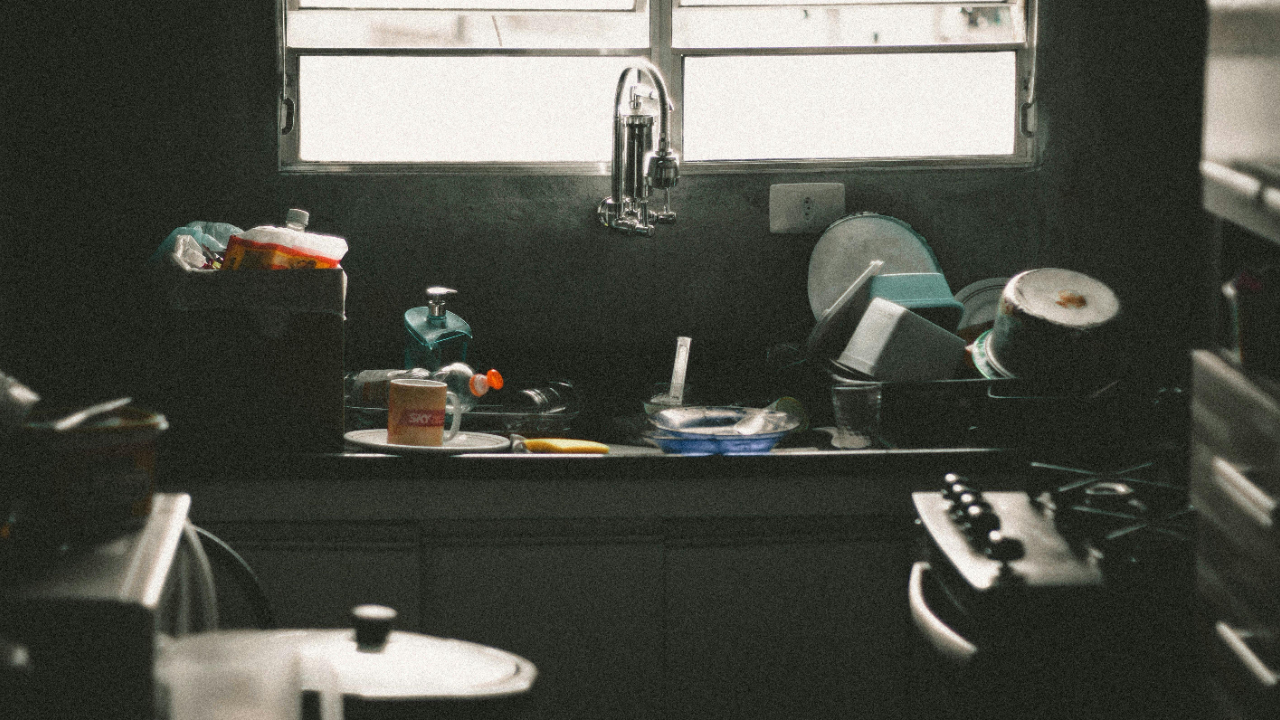Why Messy Spaces Mess With Your Mind
Sep 14, 2025
A cluttered room often feels like more than just a physical mess—it can weigh on your mind, heighten stress, and drain energy in ways that are hard to ignore. The piles on your desk, the dishes left undone, or the overflowing closet aren’t just inconveniences; they’re silent stressors that shape how you think, feel, and function day to day.
Messy environments influence mental health on both subtle and profound levels. They compete for attention, cloud focus, and often evoke feelings of guilt or frustration. Over time, the presence of clutter can begin to chip away at emotional well-being and even create a cycle where mental fatigue fuels further disorganization.
Understanding this connection between space and mind reveals why even small efforts to restore order can bring significant relief. By exploring how clutter interacts with stress, emotions, and productivity, it becomes clear that tidying up is less about aesthetics and more about creating an environment that supports mental clarity and peace. Learn more about how to break the doomscrolling habit by clicking here.
Table of Contents
The Psychology of Clutter
Clutter is more than just a pile of laundry on the chair or a stack of unopened mail on the counter—it has a direct and measurable impact on the mind. Psychologists often describe clutter as “visual noise,” an overload of competing stimuli that taxes the brain’s ability to process information. When your environment is full of unfinished tasks, scattered objects, and disorganized spaces, your mind interprets it as a constant stream of demands waiting to be addressed. Even when you’re not consciously thinking about it, clutter lingers in the background as a reminder of what hasn’t been done, subtly draining your mental energy.
Research supports this connection. Studies using brain scans have shown that people in messy environments tend to have higher levels of cortisol, the stress hormone, compared to those in tidier surroundings. Clutter increases cognitive load—the amount of mental effort your brain must expend to focus, filter, and prioritize. Imagine trying to work while a dozen people are talking around you; clutter functions in a similar way, keeping your brain overstimulated and less able to direct attention where it needs to go.
Beyond stress and distraction, clutter also affects the way people feel about themselves. A chaotic environment can reinforce feelings of being out of control, fueling negative self-talk like “I should have this together” or “I’m failing at something so simple.” This internal narrative can become self-perpetuating: the more overwhelmed you feel, the harder it becomes to tidy up, which in turn reinforces those negative beliefs. In this way, clutter is not just a symptom of stress or exhaustion—it can become a contributing factor in maintaining cycles of low mood or anxiety.
Interestingly, the psychology of clutter isn’t universally negative. Some people thrive in what might look like disorganization to others, claiming it sparks creativity or helps them feel more at ease. But for many, especially those already dealing with stress, mental health struggles, or heavy workloads, clutter quickly shifts from quirky to oppressive. Recognizing how your own mind responds to your environment is a key step toward understanding whether clutter is a neutral backdrop, a helpful creative mess, or a genuine psychological burden.
Ultimately, clutter matters because of what it represents: unfinished business, decision fatigue, and competing priorities all made visible in your surroundings. By understanding how these visual cues influence your thoughts and emotions, it becomes clearer why a messy space can make your mind feel messy too.

Stress, Anxiety, and the Weight of Mess
When spaces are disorganized, the clutter doesn’t just stay on the surface—it seeps into emotional and mental well-being. For many, a messy home or workspace acts as a constant reminder of unfinished tasks, creating a background hum of stress that never fully goes away. Unlike acute stress, which arises from an immediate challenge, clutter-induced stress is chronic and subtle, steadily wearing down resilience over time. The mind interprets disarray as chaos, and the nervous system reacts accordingly, often triggering irritability, restlessness, and feelings of unease.
Anxiety, in particular, is closely linked to clutter. A crowded environment can feel confining and overstimulating, leaving little room—both physically and mentally—for calm or clarity. Many people report a heightened sense of tension in cluttered spaces, describing it as though the mess is “pressing in” on them. This isn’t just metaphorical. Environmental psychology research shows that messy surroundings can increase heart rate and blood pressure, reinforcing the physiological symptoms of anxiety. In this way, clutter becomes more than a minor inconvenience; it transforms into an environmental stressor that directly influences mood and health.
The weight of mess also has a psychological component tied to responsibility. Piles of unsorted papers, a sink full of dishes, or overflowing laundry baskets can feel like a visible to-do list staring back at you. Each item silently demands attention, amplifying the mental load and sense of obligation. For those already struggling with anxiety or depression, this can feel paralyzing—like a mountain that grows taller every day you put it off. The result is often a cycle: clutter fuels stress and anxiety, which in turn depletes motivation, making it harder to clean, which creates even more clutter.
What makes this cycle particularly heavy is the way clutter interferes with rest and recovery. A messy bedroom, for example, has been shown to disrupt sleep quality because the brain perceives the disorder as unfinished business, keeping you in a state of alertness rather than relaxation. Similarly, trying to work in a cluttered office can extend the workday, as distraction and stress slow productivity. Instead of replenishing energy, the environment contributes to ongoing depletion. Over time, the persistent stress of mess compounds, leaving individuals feeling trapped in their own surroundings.
In essence, clutter is not neutral—it weighs on the mind in ways both subtle and profound. The stress it creates is not only about appearance or aesthetics, but about how the environment communicates with your nervous system. A messy space can tell your brain that you are unsafe, unfinished, or out of control, reinforcing anxiety at a physiological and emotional level. Understanding this connection is a crucial step toward reclaiming peace from the grip of disorder.

Mess and Emotional Well-Being
The state of our environment has a profound influence on how we feel day to day. Mess doesn’t just create stress—it quietly chips away at emotional well-being in ways that often go unnoticed until they accumulate. When a space is consistently messy, it can subtly alter a person’s self-perception, fostering feelings of inadequacy, shame, or guilt. A cluttered home may lead someone to believe they’re failing at “keeping it together,” even if the mess is the result of limited time, energy, or circumstances beyond their control. Over time, these internalized judgments can weigh heavily, eroding confidence and fueling negative self-talk.
Mess also impacts how people relate to their personal identity and sense of control. Living in a cluttered environment can make it difficult to feel grounded or settled, creating a disconnect between the physical space and the inner self. Instead of being a source of comfort, home becomes a site of tension. For many, this leads to an emotional tug-of-war: the desire for rest or relaxation collides with the nagging awareness of disorganization. This emotional friction often leads to irritability, frustration, or low-level sadness, because the space meant to restore energy instead becomes a source of emotional drain.
Shame is a particularly powerful byproduct of mess, especially when others are involved. People often feel embarrassed to invite friends or family into a cluttered home, fearing judgment or criticism. This can lead to isolation, where social connections weaken simply because the thought of “explaining the mess” feels too overwhelming. For those already experiencing depression or low mood, the shame of clutter can reinforce withdrawal and deepen feelings of loneliness. The environment becomes not only a personal struggle but also a barrier to meaningful connection with others.
At the same time, it’s important to recognize that mess is not always inherently negative—its emotional weight depends on context, meaning, and personal values. For some, a slightly messy environment feels warm, lived-in, and creatively stimulating. But when disorder surpasses an individual’s comfort threshold or contradicts their values, emotional distress arises. The key is that clutter becomes overwhelming when it no longer serves the person’s emotional needs and instead undermines their sense of stability, belonging, or peace.
Ultimately, the connection between mess and emotional well-being is deeply personal but universally powerful. A disorganized environment can become a mirror reflecting unresolved emotions, unmet needs, or unspoken guilt. When clutter accumulates, it often symbolizes more than just “stuff”—it can embody unprocessed grief, delayed decisions, or postponed responsibilities. By seeing mess not just as a physical state but as an emotional signal, it becomes possible to respond with compassion rather than criticism. In doing so, people can begin to reclaim their space not only as a place of order, but as a foundation for emotional health.

The Productivity Drain
Clutter doesn’t just take up physical space—it quietly drains cognitive energy and disrupts the brain’s ability to focus. When your environment is filled with visual stimuli competing for attention, the mind is forced to work harder to filter out irrelevant information. Research in cognitive psychology has shown that clutter taxes the brain’s attentional resources, leading to slower information processing and reduced ability to concentrate. In other words, every pile of laundry, stack of unopened mail, or scatter of objects in your line of sight adds a layer of background “noise” that makes it more difficult to stay on task.
This constant mental filtering has a snowball effect on productivity. Simple tasks that might ordinarily take a few minutes stretch longer when attention is divided. Misplaced items add another layer of inefficiency, consuming valuable time and energy in the search for what you need. Over the course of a day, this accumulation of micro-disruptions leaves people feeling drained, even if they haven’t accomplished much. The frustration of wasted time compounds the problem, as feelings of failure or defeat further erode motivation to tackle either the task at hand or the clutter itself.
Clutter also interrupts the natural flow of decision-making. In a messy space, each choice—where to work, what to prioritize, or even whether to clear the table before beginning—carries additional mental weight. This increases the likelihood of procrastination, as the brain resists engaging with tasks that feel unnecessarily complicated. For many, this results in a cycle of avoidance: the mess makes productivity harder, which leads to more procrastination, which in turn allows clutter to build further. The end result is not only reduced output but also heightened stress around deadlines, unfinished projects, and unmet goals.
On a deeper level, clutter undermines the psychological state necessary for creativity and problem-solving. Clean, organized environments tend to free up cognitive resources, allowing the mind to wander productively and generate new ideas. In contrast, cluttered settings can lock the brain into a reactive state, focused more on managing distractions than exploring possibilities. For someone working from home or trying to complete personal projects, this means less space—literally and mentally—for innovation and flow. The environment becomes a barrier rather than a catalyst for progress.
It’s also worth noting that the productivity drain of clutter isn’t only about the individual. In shared households or workspaces, mess can disrupt collaboration and communication. If one person can’t find the tools they need, or if someone else’s clutter dominates common areas, it can spark tension and resentment. This interpersonal friction adds another layer of disruption, making it even harder for groups to function smoothly and achieve their goals together.
Ultimately, the productivity toll of clutter is far greater than many realize. It doesn’t just slow down tasks—it reshapes how energy, time, and attention are spent throughout the day. By recognizing how mess erodes focus and efficiency, people can begin to see decluttering not as a cosmetic preference but as a powerful productivity strategy. A cleaner environment doesn’t simply look better; it provides the mental clarity and structure necessary to work at full potential without constant distraction.

Small Shifts Toward Mental Clarity
The good news about the relationship between clutter and mental health is that even small, intentional changes in your environment can yield noticeable improvements in clarity, mood, and focus. Decluttering doesn’t have to mean an all-day overhaul of every corner of your home; in fact, overwhelming expectations often prevent people from starting at all. Instead, adopting small, manageable habits allows you to make progress without triggering the paralysis that clutter itself can cause. Each shift, however modest, reinforces a sense of agency and calm, which gradually accumulates into meaningful mental relief.
One effective starting point is the “one-minute rule”: if a task takes less than a minute, do it immediately. Hanging up your coat instead of tossing it on a chair, rinsing a dish rather than leaving it in the sink, or putting away an item after using it may feel trivial, but these micro-actions prevent clutter from snowballing into a larger, stressful mess. By practicing consistency with these quick wins, you create an environment where order maintains itself with minimal effort, sparing your future self from facing a mountain of small tasks that collectively feel insurmountable.
Another helpful approach is the “five-minute reset.” Taking just five minutes at the end of the day to tidy one small space—whether that’s clearing a desk, sorting the mail pile, or putting away laundry—can transform how you feel walking into that space the next morning. This practice not only resets the environment but also resets the mind, signaling closure for the day and preparing you to begin anew with less visual and mental clutter. These incremental resets cultivate a rhythm of care that enhances both productivity and peace of mind.
It’s also important to tailor decluttering to your lifestyle and values rather than striving for a picture-perfect minimalist home. For some, organization means a labeled system and clear surfaces; for others, it might simply mean designating specific zones where items “belong.” When your environment reflects your needs instead of an unrealistic aesthetic, you’re more likely to maintain it. Personalizing your approach prevents decluttering from feeling like another external pressure and instead reframes it as a supportive, self-directed choice for mental well-being.
Additionally, consider the role of intentional placement. Items you use daily should be accessible, while less-used items can be stored away. This simple principle reduces decision-making and frustration while reinforcing a sense of order. For example, keeping everyday tools within arm’s reach on your desk but storing seasonal or rarely used items in bins keeps surfaces functional and visually calmer. The reduced friction in finding what you need translates directly into reduced stress and greater mental clarity.
Finally, small shifts in physical space can also be symbolic shifts in mindset. Choosing to clear a corner of a room, make your bed, or open a window to let in light doesn’t just alter the external environment—it sends a message to your inner world that you are actively creating space for calm, focus, and renewal. These tangible acts reinforce psychological resilience, reminding you that while you cannot always control stressors in life, you can create an environment that supports you in managing them.
The power of these small shifts lies in their compounding effect. Each step toward decluttering frees up a little more energy and focus, which then makes it easier to take the next step. Over time, these cumulative changes transform messy spaces into supportive environments that foster clarity and peace. Rather than striving for perfection, the goal is to build a sustainable balance—an environment that nurtures your mental health instead of undermining it.

More Resources
If you are interested in learning more, click here. For more information on this topic, we recommend the following:
Are you passionate about helping others unlock their potential? Our Board Certified Coach (BCC) training, approved by the Center for Credentialing & Education (CCE), equips you with the skills, tools, and certification needed to thrive as a professional coach. Take the next step toward a rewarding coaching career with our comprehensive program! Click here to learn more!
The Life-Changing Magic of Tidying Up: The Japanese Art of Decluttering and Organizing
Decluttering at the Speed of Life: Winning Your Never-Ending Battle with Stuff
DISCLAIMER: As an Amazon Associate we earn from qualifying purchases. This post may contain affiliate links that will reward us monetarily or otherwise when you use them to make qualifying purchases. In addition, there may be non-Amazon affiliate links in this post which means we may receive a commission if you purchase something through a link. However, be assured that we only recommend products that we see genuine value in.
The information provided is for educational purposes only and does not constitute clinical advice. Consult with a medical or mental health professional for advice.
Finances do not have to prevent you from getting support.
Come join our support community.
Where would you like us to send the free support group invite and complimentary workbook?
Your Information Will Be Kept Private




